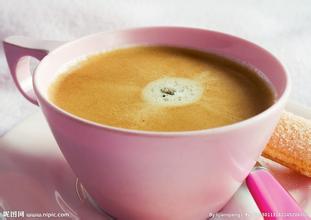Introduction to Chilmel Manor in Rwanda Malaba Coffee Bean
Malaba coffee beans are manually selected and classified according to their quality.
PEARL brought coffee experts to Rwanda to maintain contact with the seller, the Public Coffee Company (Community Coffee) in Louisy, USA, and sent samples to Louisiana. In June 2002, representatives of public coffee visited Malaba. At that time, the current President of Rwanda, Paul Kagame, declared the importance of the plan on behalf of the government. Public Coffee bought 18000 kilograms (40000 pounds) of Malaba beans at $3 per kilogram above the average market price. Coffee beans are shipped to Louisiana, where they are roasted locally and used in the company's delicate coffee. It is also the first direct contract between an American roaster and an African coffee cooperative.
Comic relief, a British charity, has also taken an interest in Malaba. They pledged to use some of the 55 million pounds earned from their 2001 Red nose Day (Red Nose Day) in Britain and Africa to donate to the Genocide Widows Association (Association des Veuves du Genocide,AVEGA), an association set up for the widows of the 1994 Rwanda massacre. The charity found that many Malaba farmers are also members of AVEGA, so they can provide funds and assistance to Malaba farmers through AVEGA. They then contacted the British coffee roasting company (Union Coffee Roasters) and their representatives visited Malaba together with senior officials of the International Fair Trade labelling Organization (FLO) in 2002. After a group of people visited various places, they awarded proof that Malaba coffee had also become a commodity for the first time for Rwandan cooperatives to gain fair trade status. UCR described Malaba Coffee as "flashing citrus flavors with rich, sweet chocolate notes" and bought all the unsold products during the 2002 harvest.
In early 2003, UCR distributed Malaba coffee through the Sainsbury's supermarket in Sainsbury and sold it in its 350 stores until Red nose Day that year. In 2003, Abauzam Gump made a net profit of US $35000. Of this, 70 per cent is allocated to farmers at a price of US $0.75 per kilogram, more than three times the profits earned by other Rwandan coffee growers and enough to cover previously unaffordable health care and education services. The remaining 30% is invested in cooperatives and used to buy calcium carbonate, an agricultural lime that can reduce the increase in acidity of the soil due to the loss of minerals by rainfall.
Coffee and beer
Since 2003, when PEARL thought that the mode of operation was self-sufficient, it gradually reduced the financial support of the Abauzam Gambi cooperative. Cooperatives provide grower loans to help improve their living standards and can invest in livestock, health insurance and education. A cooperative bank opened in the village in March, allowing farmers to maintain and manage their deposits locally without having to trek to the city of Butare.
People revolved around the computers in the new telecom center in late 2004, when the London simultaneous Brewery (Meantime Brewery) began to offer coffee beer made from coffee beans produced by Malaba. The drink is identified as an alcoholic chilled cappuccino or digestif. After tasting coffee from all over the world, the chief brewer decided to add a small amount of vanilla and chocolate to Malaba coffee, which tastes better than nutty coffee and bitter coffee from South America. The original beer had an alcohol content of 4%, the same caffeine content as coffee and was described as "silky and mellow". Coffee and beer are sold in large branches in Sainsbury and in some bars and clubs. The drink is one of the only two Fairtrade-recognised beers in the UK market, and it was not until 2006 that it lost its Fairtrade status by reducing coffee rates and increasing alcohol content (now 6 per cent). Coffee beer is still made from Malaba coffee beans and is the only coffee beer recognized in the British Isles and won the gold medal in the world beer cup coffee flavor beer category in 2006.

Important Notice :
前街咖啡 FrontStreet Coffee has moved to new addredd:
FrontStreet Coffee Address: 315,Donghua East Road,GuangZhou
Tel:020 38364473
- Prev

Introduction to Santa Ana Volcano area of Salvadoran Coffee Manor with Water washing and Solar treatment
Salvador (So Salvador da Baa de Todos os Santos, meaning San Salvador on Halloween Bay) is a coastal city in northeastern Brazil and the capital of Bahia state. El Salvador was called Bahia directly for a long time, and it was marked as Bahia in many books and maps before the middle of the 20th century (for example, Robinson Drift by Daniel Difoe).
- Next

Tanzania Coffee Flavor Manor with African characteristics introduce Arusha Coffee Manor
Tanzania's main coffee producing area, located at the foot of Mount Kilimanjaro, is rich in volcanic soil. Some coffee trees planted here are more than 100 years old. Coffee was first introduced by Christians from Kenya to grow coffee. Coffee trees must be carefully taken care of, weeded and fertilized. And old branches must be cut off so that new branches can grow to maintain the quality of coffee beans.
Related
- Does Rose Summer choose Blue, Green or Red? Detailed explanation of Rose Summer Coffee plots and Classification in Panamanian Jade Manor
- What is the difference between the origin, producing area, processing plant, cooperative and manor of coffee beans?
- How fine does the espresso powder fit? how to grind the espresso?
- Sca coffee roasting degree color card coffee roasting degree 8 roasting color values what do you mean?
- The practice of lattes: how to make lattes at home
- Introduction to Indonesian Fine Coffee beans-- Java Coffee producing area of Indonesian Arabica Coffee
- How much will the flavor of light and medium roasted rose summer be expressed? What baking level is rose summer suitable for?
- Introduction to the characteristics of washing, sun-drying or wet-planing coffee commonly used in Mantenin, Indonesia
- Price characteristics of Arabica Coffee Bean Starbucks introduction to Manning Coffee Bean Taste producing area Variety Manor
- What is the authentic Yega flavor? What are the flavor characteristics of the really excellent Yejasuffi coffee beans?

